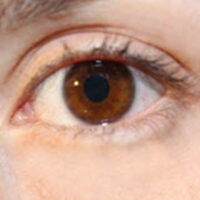Social Security Disability And Vision Loss: What To Know

If you are suffering from vision loss and are having difficulty performing the tasks you are required to do at work or you cannot perform those tasks any longer, you may be wondering if you are eligible to file for Social Security Disability benefits. When it comes to blindness and vision loss, there are some specific things that you should know about obtaining payments through the Social Security Disability Insurance (SSDI) program. Our national disability lawyers can provide you with some of the information you need and can assist you with your claim or a reconsideration request or appeal.
Blindness and Low Vision Are Different for SSDI Purposes
The first thing you should know is that blindness and low vision, according to the Social Security Administration (SSA), are treated differently. While either condition may allow you to qualify for certain federal benefits, there are specific disability benefits for blind persons, and the definition of blindness is distinct from definitions for disabilities linked to low vision.
Defining Blindness for Disability Benefits
Blindness often qualifies a person for SSDI benefits, as long as the person seeking those benefits also meets the other requirements in terms of duration and recency of work experience. The SSA says that a person is blind for disability benefits purposes if “your vision can’t be corrected to better than 20/200 in your better eye or if your visual field is 20 degrees or less in your better eye for a period that lasted or is expected to last at least 12 months.”
Disability Benefits May Still Be Available for Low Vision That Does Not Meet the Definition of Blindness
Even if you are not blind or do not suffer from blindness according to the SSA’s definition, your low vision may still constitute a disability that can qualify you for SSDI benefits. According to the SSA, if you have low vision, you will need to be able to prove that “your vision problems alone, or combined with other health problems, prevent you from working.” You should speak with your disability benefits lawyer proving that your low or limited vision qualifies as a disability according to the SSA.
Working with Blindness
The SSA allows people who are blind, according to the SSA’s definition, to work and to continue receiving Social Security disability benefits. Beginning in 2021, you can earn up to $2,190 per month, an amount that is significantly higher than the monthly earning limit of $1,310 for other disabled workers who have disabilities other than blindness. In addition, if you are 55 or older and you are blind, if you earn more than the maximum monthly earnings, your disability benefits will only be suspended (while they would otherwise be terminated for a worker receiving disability benefits in connection with a disabling condition other than blindness).
Contact a National Disability Benefits Lawyer Today
If you have questions about seeking disability benefits for blindness or low vision, one of the experienced national Social Security disability benefits attorneys at our law firm can speak with you today about your inquiries and concerns. Contact the Law Offices of Stephen Barszcz for more information about the services we provide to disabled workers across the country.
